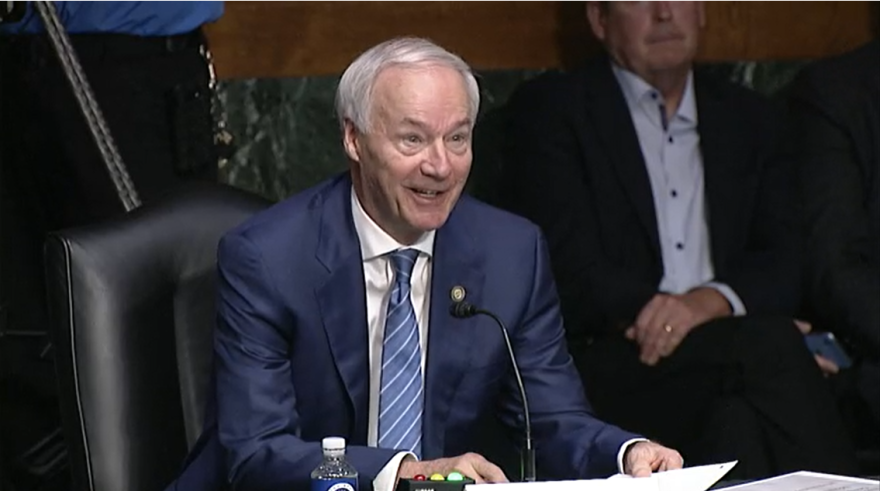Arkansas’ Republican governor is voicing his support for federal legislation addressing the disparity in sentencing for crimes related to cocaine and crack cocaine.
Gov. Asa Hutchinson testified Tuesday in front of the U.S. Senate Judiciary Committee, in support of a proposed bill known as the EQUAL Act, sponsored by Sen. Cory Booker, D-NJ.
Hutchinson told committee members that imposing harsher sentences for crack cocaine ultimately hampers law enforcement efforts to crack down on drug trafficking.
“Unfairness erodes cooperation, whether it’s the development of informants, to the ability to get cooperation, to working up the ladder of a drug trafficking organization. Confidence in equal treatment under the law is the foundation of our rule of law, and it’s currently being undermined by that disparity,” Hutchinson said.
A 1986 federal law resulted in penalties for crack cocaine being 100 times harsher than for powder cocaine. That was reduced to an 18 to 1 disparity in 2009, while the EQUAL Act seeks to eliminate the disparity altogether.
In Arkansas, cocaine and crack cocaine offenses are treated equally in sentencing. Hutchinson says he supports that on a federal level since drug quantity isn’t an accurate indicator for how long a prison sentence should be.
“We have to recognize that the sentencing guidelines [have] factors that will recognize the degree of firearm use, whether there are victims that have been harmed, and the criminal record of the defendant,” Huchinson said. “All of those are factors that can be brought to bear on the ultimate sentence.”
Hutchinson said the sentencing disparity also disproportionately affects Black Americans, which has a ripple effect through the criminal justice system.
“You have juries that believe in jury nullification. The community does not want to hold people accountable because they see the entire system unfair. You see a lack of cooperation, respect among the police,” Hutchinson said. “And then you have communities that are impacted because of long periods of incarceration that is not applicable to other communities.”
Government data show that in 2019, 81% of crack cocaine defendants were Black, a number that fell slightly to 76% in 2020.
Critics, including U.S. Sen. Tom Cotton of Arkansas, have spoken against more lenient sentencing for crack cocaine offenses.Hutchinson, a former administrator of the U.S. Drug Enforcement Administration, said the justice system should put a greater emphasis on alternatives to prison, including drug courts.






